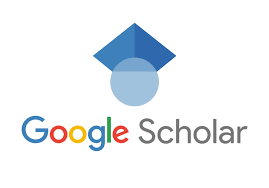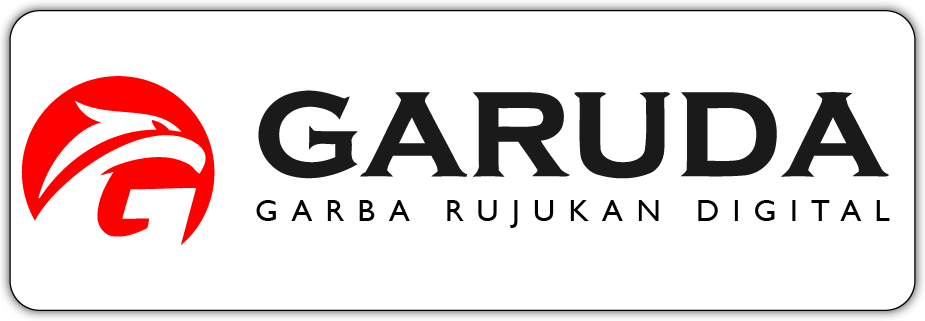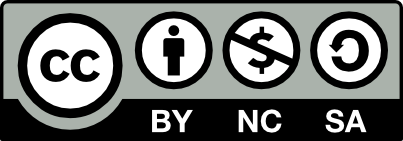Hubungan Konsumsi Makanan, Kebiasaan Cuci Tangan Dan Olahraga Dengan Persepsi Imunitas Tubuh Pekerja UMKM Pada Masa Pandemi Covid-19
Abstract
Masa Pandemi COVID-19 masyarakat harus meningkatkan sistem imunitas tubuh yang merupakan kekuatan pertahanan tubuh dalam melindungi dan melawan bakteri, virus dan organisme yang akan menyebabkan kesakitan dimana jalan masuk penularannya dapat melalui setuhan kulit, konsumsi dan terhirup saluran pernapasan dari aktivitas masyarakat setiap harinya. Faktor atau hal yang berkaitan dengan daya tahan atau imunitas tubuh yaitu makanan bergizi, mencuci tangan dengan alir mengalir menggunakan sabun serta rutin untuk berolahraga. Persepsi seseorang yang baik tentang imunitas tubuh dapat mempengaruhi tindakannya untuk melakukan upaya perbaikan kesehatannya. Salah satu kelompok masyarakat yang berisiko terpapar COVID-19 adalah pekerja di UMKM di wilayah Jakarta yang tetap melayani kebutuhan masyarakat di tengah ancaman penularan COVID-19. Tujuan penelitian ini mengetahui hubungan variabel independent yaitu umur, jenis kelamin, pendidikan, masa kerja, konsumsi makanan, kebiasaan mencuci tangan, olahraga dengan variabel dependen yaitu persepsi imunitas tubuh pekerja UMKM. Penelitian ini menggunakan metode deskriptif dan analitik dengan pendekatan Cross Sectional. Variabel penelitian ini yaitu umur, jenis kelamin, Pendidikan, masa kerja, konsumsi makanan, kebiasaan cuci tangan, olahraga, sampel penelitian menggunakan rumus besar sampel dan didapatkan 112 pekerja UMKM yang berdomisili di wilayah Jakarta Timur, cara pengambilan sampel menggunakan teknik accidental dan uji statistik menggunakan Chi Square. Hasil penelitian ini didapatkan sebagian besar pekerja UMKM berumurnya > 40 tahun sebanyak 50,9%, pekerja UMKM berjenis kelamin laki-laki 62,5%, pekerja UMKM yang berpendidikan rendah sebanyak 67,9%, pekerja yang masa kerjanya < 3 tahun sebanyak 51,8%, pekerja UMKM yang konsumsi makannya kurang baik sebanyak 58,0%, pekerja UMKM yang memiliki kebiasaan mencuci tangannya yang baik 55,4% dan pekerja UMKM yang memiliki kebiasaan olahraganya termasuk yang baik sebanyak 55,4%, variabel yang berhubungan dalam penelitian ini adalah variabel umur, pendidikan, konsumsi makanan, kebiasaan mencuci tangan, kebiasaan olahraga sedangkan variabel yang tidak berhubungan adalah variabel jenis kelamin dan masa kerja.
References
Aziz, Abdul, M., (2014) Hubungan persepsi siswa dengan tingkat keberhasilan belajar matapelajaran pendidikan agama islam di SMAN 1 Sidoarjo
BPS Propinsi Jakarta (2016). Potensi Usaha mikro kecil provinsi DKI Jakarta. Badan Pusat Statistik DKI Jakarta.
Fadhila, Intan, 2020. Upaya Pekerja Kaki Lima dalam mengatasi terpaan berita penyebaran COVID-19 di Televisi. Islamic Communication Journal volume 5 nomor 2.
Misrah, Sunita et al. 2020. Role of Nutrition on Immune System During COVID-19 Pandemic, Review Article. India. Journal Food Nutrition Helath.Volume 3 Issue 2.
Mubarak. 2011. Promosi Kesehatan Untuk Kebidanan, Jakarta; Salemba Medika
Mulyani. 2020. Asupan Gizi dalam Upaya Meningkatkan Imunitas di Masa Pandemi Covid-19. Jurnal Kesehatan.
Muhammad. 2020. Pengaruh Pandemi Covid-19 Terhadap Aktivitas Fisik dan Penerapan Prinsip Gizi Seimbang Pada Mahasiswa Pascasarjana. Prinsip Gizi Seimbang Pada Mahasiswa Pascasarjana. Indonesian Journal of Public Health and Community Medicine Volume 1 nomor 4.
Nanavaty et al. A cross-sectional study for determining the perception and preferences
of immunity boosters for protection against COVID-19. India. International Journal of Advances in Medicine. Volume 7, Issue 10.
Notoatmodjo. 2014. Promosi Kesehatan dan Perilaku Kesehatan. PT Rineka Cipta. Jakarta.
Saleh. 2014. Hubungan tingkat konsumsi energi dan protein dengan daya tahan tubuh pada atlet pusat Pendidikan dan Latihan pelajar sepakbola salatiga. Salatiga Jawa Tengah. Jurnal Gizi Universitas Muhammadiyah Semarang. Volume 3 Nomor 2.
Sastroasmoro, 2014. Dasar-Dasar Metodologi Penelitian Klinis. Jakarta: Sagung Seto
KPCPEN, 2021. Situasi COVID-19 di Indonesia, Komite Penanganan COVID-19 dan Pemulihan Ekonomi Nasional. tanggal akses 15 Maret 2021, link https://covid19.go.id
Kemenkes 2014. Pedoman Gizi Seimbang. Kementerian Kesehatan Republik Indonesia. Jakarta
Kemenkes, 2020. Panduan Gizi seimbang pada masa pandemi COVID-19. Kementerian Kesehatan Republik Indonesia. Jakarta
Kemenkes, 2021. Pedoman Gizi Seimbang. Kementerian Kesehatan Republik Indonesia. Jakarta
Lisnawaty. 2020. Perilaku Mengonsumsi Makanan Bergizi Selama Pandemic Covid-19 Pada Masyarakat Sulawesi Tenggara. Preventif Journal. Volume 5 Nomor 1.
LPPI, 2015. Profil Bisnis Usaha Mikro, Kecil dan Menengah (UMKM). Lembaga Pengembangan Perbankan Indonesia dan Bank Indonesia. Jakarta
Undang-Undang Nomor 20 tahun 2008 Tentang Usaha Mikro, Kecil dan Menengah (UMKM). Pemerintah Republik Indonesia. Jakarta
Walgito, Bimo. (2010). Pengantar Psikologi Umum.Yogyakarta: Andi Offset.
Copyright (c) 2022 IFI Cabang Kota Bekasi

This work is licensed under a Creative Commons Attribution-NonCommercial-ShareAlike 4.0 International License.
Submission Preparation Checklist
As part of the submission process, authors are required to check off their submission's compliance with all of the following items, and submissions may be returned to authors that do not adhere to these guidelines.
- I hereby declare that this submission is my own work.
- I hereby stated that this manusrcipt have no plagiarism matter.
- I declare the submission has no potential conflict of interest.
- I hereby stated that this manusrcipt have never been previously published in any other scientific publication and not being under reviewing process of any other scientific publication.
- The submitted manuscript contains no least than 2.000 words and not exceed 25 pages A4 including figures and tables, without any appendixes.
- The submitted manuscript has been written using Open Office Text Document (.odt) or Microsoft Word (.doc/.docx).
- Title already brief and concise, written in English, and less than 15 words.
- Abstract already brief and concise and not exceed 150 words in English.
- Keywords are written in English, between three to five phrase.
- The manuscript structure already consist: Introduction, Method/Material, Result and Discussion, Conclusion, Acknowledgement, and References.
- References are written according the writing style of MEV. The primary references are no less than 80% from at least fifteen sources and had been taken from the late ten year publications.
- The instructions in Ensuring a Blind Review have been followed to the submitted manuscript.
- (At least) two scientific referees have been suggested in "Comments for the Editor" textbox in the bottom of this page.
Copyright Notice
Retained Rights/Terms and Conditions of Publication
1. As an author you (or your employer or institution) may do the following:
- make copies (print or electronic) of the article for your own personal use, including for your own classroom teaching use;
- make copies and distribute such copies (including through e-mail) of the article to research colleagues, for the personal use by such colleagues (but not commercially or systematically, e.g. via an e-mail list or list server);
- present the article at a meeting or conference and to distribute copies of the article to the delegates attending such meeting;
- for your employer, if the article is a ‘work for hire’, made within the scope of your employment, your employer may use all or part of the information in the article for other intra-company use (e.g. training);
- retain patent and trademark rights and rights to any process, procedure, or article of manufacture described in the article;
- include the article in full or in part in a thesis or dissertation (provided that this is not to be published commercially);
- use the article or any part thereof in a printed compilation of your works, such as collected writings or lecture notes (subsequent to publication of the article in the journal); and prepare other derivative works, to extend the article into book-length form, or to otherwise re-use portions or excerpts in other works, with full acknowledgement of its original publication in the journal;
- may reproduce or authorize others to reproduce the article, material extracted from the article, or derivative works for the author’s personal use or for company use, provided that the source and the copyright notice are indicated, the copies are not used in any way that implies RCEPM-LIPI endorsement of a product or service of any employer, and the copies themselves are not offered for sale.
All copies, print or electronic, or other use of the paper or article must include the appropriate bibliographic citation for the article’s publication in the journal.
2. Requests from third parties
Although authors are permitted to re-use all or portions of the article in other works, this does not include granting third-party requests for reprinting, republishing, or other types of re-use. Requests for all uses not included above, including the authorization of third parties to reproduce or otherwise use all or part of the article (including figures and tables), should be referred to RCEPM-LIPI by going to our website athttp://telimek.lipi.go.id.
3. Author Online Use
- Personal Servers. Authors and/or their employers shall have the right to post the accepted version of articles pre-print version of the article, or revised personal version of the final text of the article (to reflect changes made in the peer review and editing process) on their own personal servers or the servers of their institutions or employers without permission from RCEPM-LIPI, provided that the posted version includes a prominently displayed RCEPM-LIPI copyright notice and, when published, a full citation to the original publication, including a link to the article abstract in the journal homepage. Authors shall not post the final, published versions of their papers;
- Classroom or Internal Training Use. An author is expressly permitted to post any portion of the accepted version of his/her own articles on the author’s personal web site or the servers of the author’s institution or company in connection with the author’s teaching, training, or work responsibilities, provided that the appropriate copyright, credit, and reuse notices appear prominently with the posted material. Examples of permitted uses are lecture materials, course packs, e-reserves, conference presentations, or in-house training courses;
- Electronic Preprints. Before submitting an article to an MEV Journal, authors frequently post their manuscripts to their own web site, their employer’s site, or to another server that invites constructive comment from colleagues. Upon submission of an article to MEV Journal, an author is required to transfer copyright in the article to RCEPM-LIPI, and the author must update any previously posted version of the article with a prominently displayed RCEPM-LIPI copyright notice. Upon publication of an article by the RCEPM-LIPI, the author must replace any previously posted electronic versions of the article with either (1) the full citation to the work with a Digital Object Identifier (DOI) or link to the article abstract in MEV journal homepage, or (2) the accepted version only (not the final, published version), including the RCEPM-LIPI copyright notice and full citation, with a link to the final, published article in journal homepage.
4. Articles in Press (AiP) service
RCEPM-LIPI may choose to publish an abstract or portions of the paper before we publish it in the journal. Please contact our Production department immediately if you do not want us to make any such prior publication for any reason, including disclosure of a patentable invention.
5. Author/Employer Rights
If you are employed and prepared the article on a subject within the scope of your employment, the copyright in the article belongs to your employer as a work-for-hire. In that case, RCEPM-LIPI assumes that when you sign this Form, you are authorized to do so by your employer and that your employer has consented to the transfer of copyright, to the representation and warranty of publication rights, and to all other terms and conditions of this Form. If such authorization and consent has not been given to you, an authorized representative of your employer should sign this Form as the Author.
6. RCEPM-LIPI Copyright Ownership
It is the formal policy of RCEPM-LIPI to own the copyrights to all copyrightable material in its technical publications and to the individual contributions contained therein, in order to protect the interests of the RCEPM-LIPI, its authors and their employers, and, at the same time, to facilitate the appropriate re-use of this material by others. RCEPM-LIPI distributes its technical publications throughout the world and does so by various means such as hard copy, microfiche, microfilm, and electronic media. It also abstracts and may translate its publications, and articles contained therein, for inclusion in various compendiums, collective works, databases and similar publications
Every accepted manuscript should be accompanied by "Copyright Transfer Agreement" prior to the article publication.





